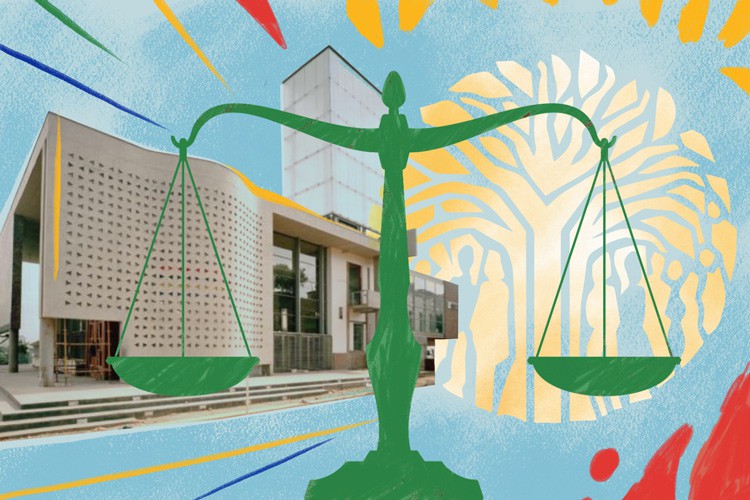Judge sets precedent, orders therapy for child rape victim
The ten-year-old victim will receive monthly therapy for two years
Illustration: Lisa Nielson
An Eastern Cape High Court judge has given judicial protection to a ten-year-old victim of rape, and made a “therapy order”, possibly unprecedented, that the child must receive monthly counselling for two years. Those responsible for counselling the child must report back to the court on progress every six months.
Judge Thandi Norman made the order at the conclusion of the criminal trial in which the perpetrator, the 46-year-old uncle of the child, was convicted of raping her three times. He pleaded guilty and expressed remorse and was sentenced to 25 years imprisonment.
Judge Norman noted that ordinarily in criminal proceedings once a sentence was imposed “that is the end of the trial”. “If nothing is said about the child victim other than condemning the unlawful act itself, the child will go back home with no support from the justice system,” she said.
She said criminal courts always had regard to the popularly known “triad” of principles when handing down sentences. These were the crime itself, the accused, and the interests of society. Children’s interests were lumped with “interests of society” and were not considered as a standalone principle, she said.
During the trial, Judge Norman heard evidence from Captain Eunice Jiya, a specialist forensic investigator who had interviewed the child and testified that the child needed therapy.
Judge Norman tasked Jiya with putting arrangements in place with the local department of social development for counselling sessions.
The State Advocate involved in the trial confirmed the arrangements and a schedule of the times and dates of therapy was prepared and handed in to the court.
Judge Norman confirmed with the child’s caregiver that she would take the child to the appointments and “abide by the order”. She also confirmed with the child’s father that he was able to pay the monthly R36 taxi fare to get the child to therapy and back.
The judge ordered when the first session should take place and that the social worker be entitled to arrange further sessions in the best interests of the child.
She also directed the regional service office manager at the department to arrange and manage the sessions and file progress reports with the court every six months.
Support independent journalism
Donate using Payfast

Don't miss out on the latest news
We respect your privacy, and promise we won't spam you.
© 2022 GroundUp. This article is licensed under a Creative Commons Attribution-NoDerivatives 4.0 International License.
You may republish this article, so long as you credit the authors and GroundUp, and do not change the text. Please include a link back to the original article.
We put an invisible pixel in the article so that we can count traffic to republishers. All analytics tools are solely on our servers. We do not give our logs to any third party. Logs are deleted after two weeks. We do not use any IP address identifying information except to count regional traffic. We are solely interested in counting hits, not tracking users. If you republish, please do not delete the invisible pixel.

